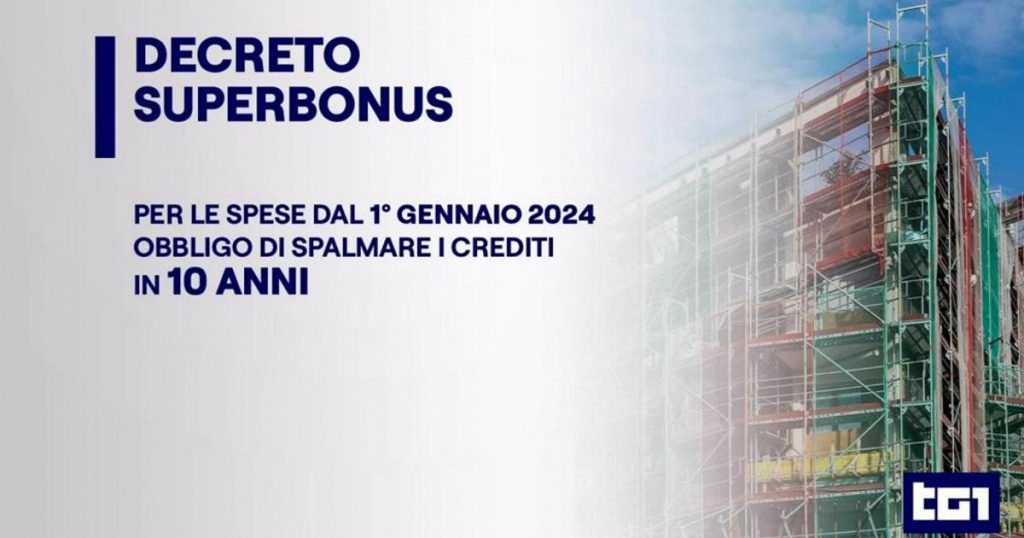The obligation to spread out the tax credits from the Superbonus over 10 years will only apply to expenses incurred in 2024. This means that taxpayers who qualify for the Superbonus will not have to spread out their tax credits for expenses incurred in other years. This decision is intended to provide financial relief to taxpayers who have incurred significant expenses in 2024 in order to take advantage of the Superbonus program.
The Superbonus is a tax credit available to taxpayers in Italy who make energy-efficient improvements to their homes or buildings. The program was introduced to encourage investment in renewable energy and energy efficiency measures. Under the Superbonus program, taxpayers can receive a tax credit of up to 110% of the cost of eligible improvements. This has made the program very popular among taxpayers looking to make their homes more energy-efficient.
The decision to require tax credits from the Superbonus to be spread out over 10 years for expenses incurred in 2024 comes as part of a larger effort to provide economic stimulus and support to taxpayers during the COVID-19 pandemic. The government has implemented several measures aimed at supporting the economy and providing financial relief to individuals and businesses affected by the pandemic. The decision to allow taxpayers to spread out their tax credits over 10 years is one of the measures intended to ease the financial burden on taxpayers.
The Superbonus program has been credited with boosting investment in renewable energy and energy efficiency measures in Italy. By providing a tax credit of up to 110% of the cost of eligible improvements, the program has incentivized taxpayers to make energy-efficient upgrades to their homes or buildings. This has not only helped reduce energy consumption and lower utility bills for taxpayers, but has also contributed to Italy’s efforts to reduce its carbon footprint and combat climate change.
The requirement to spread out tax credits from the Superbonus program over 10 years for expenses incurred in 2024 is expected to have a positive impact on taxpayers who have made significant investments in energy-efficient improvements. By allowing taxpayers to spread out their tax credits, the government is providing them with more flexibility and financial relief. This is especially important for taxpayers who may have incurred high expenses in 2024 in order to take advantage of the Superbonus program.
Overall, the decision to require tax credits from the Superbonus program to be spread out over 10 years for expenses incurred in 2024 is a positive development for taxpayers in Italy. By providing financial relief and flexibility to taxpayers who have made energy-efficient improvements to their homes or buildings, the government is supporting the goal of reducing energy consumption and combatting climate change. This decision is part of a larger effort to provide economic stimulus and support to individuals and businesses affected by the COVID-19 pandemic, and is expected to have a lasting impact on the energy efficiency and sustainability of buildings in Italy.


